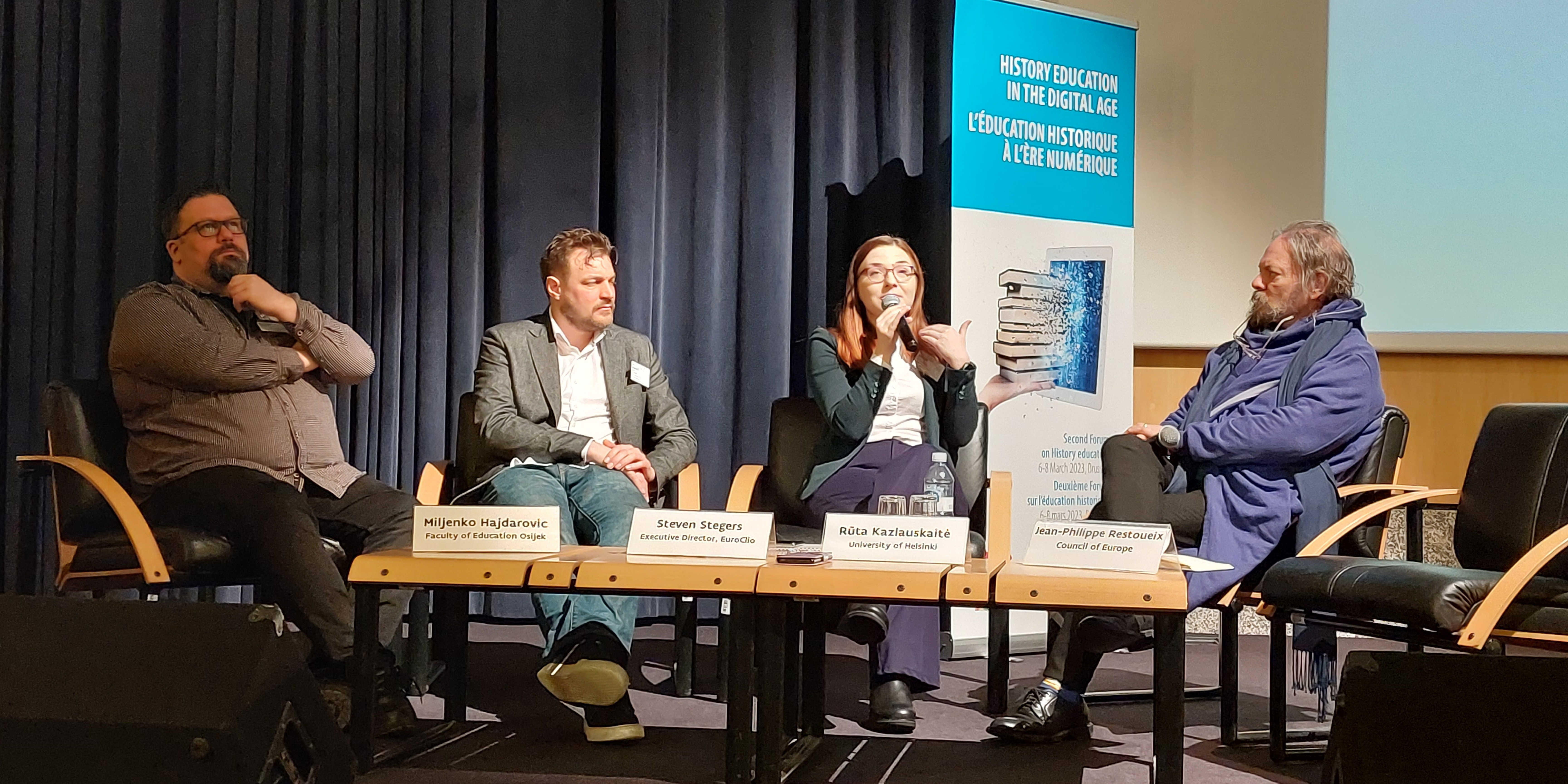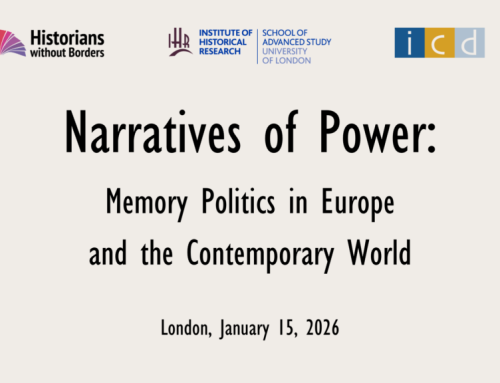The 2nd Annual Forum of the Council of Europe (CoE) on History Education took place in Brussels on March 7 – 8, 2023. Organised by the CoE Education department, and co-hosted jointly by the respective Ministries of Education of the Dutch Language Community and the French Language Community of Belgium, it brought together over 70 participants keen to learn and discuss the challenges and opportunities that the digital age poses on history education. Teachers and educators from EuroClio’s network, NGO representatives, policymakers, and government officials had the opportunity to network and discuss common issues among their different backgrounds.
This article presents our five main takeaways from the conference.
- It was certainly a timely event. After having faced the challenge of online and blended learning during the Covid-19 pandemic, history teachers have found themselves dealing with yet another concern on how to teach the past in the context of fast-evolving digital technologies. The rise of Artificial Intelligence (AI) and its use in the classroom was addressed in multiple stages. A panel discussion in which Steven Stegers, EuroClio’s Executive Director, participated shed light on the newly discovered opportunities that may come from AI, as well as its limits. Pim Renou and Pieter Mannak from Hogeschool Utrecht also held a workshop where they explored what role an AI-generated version of the past can play compared to traditional sources such as text, images, but also historical games. Among the “black box” of unknown information, one thing is certain: AI is here to stay.
- The basics are still important. While the rise of digital technology brings fascinating developments, when it comes to history education, it should not be forgotten that the use of primary sources, historical methods, and critical reading remains at the centre of the know-how and the development of critical thinking. However, teachers have opportunities to supplement traditional methods with innovative and new technologies. Integrating the use of machine learning to aid in conducting research projects by asking the computer to read and identify frames, topics, or patterns in a vast amount of documents, or using social media as a source of data are only two of the ways of revisiting history education. Teachers should not worry about being ‘replaced’, instead, they should adapt to the new changes and learn how to use digital tools to their benefit. After all, tools such as ChatGPT are and remain indeed tools, not solutions. The role of teacher training in providing future and in practice teachers with these skills is similarly important.
- AI is as threatening as we make it. Throughout the plenaries and workshops, there were both sentiments of hope as well as fear or scepticism. It is important to note that AI technologies are already everywhere, even if we are not aware of them: they help us to complete email texts, and they are embedded in the EdTech software used in schools. Realising, however, that AI can output only based on what it is fed helps in reframing our understanding of their potential. Frédéric Clavert, the keynote speaker of the event, introduced the concept of datafication, which is the digitalisation of primary and secondary sources into data that can be computed, analysed, and interpreted by the machine. The choice of what to digitalise also influences the way AI learns history. If data is biased, then AI is biased, and, in return, it influences the way we see the past.
- The possibilities for history as a subject matter to strengthen the digital literacy of students were also highlighted and contextualised. Oftentimes, students and young people are assumed to be the most familiar with navigating the digital world. However, Teresa Elena Ortega presented a research done by the Stanford Education Group on historical thinking and Civic Online Reasoning, where it was found that between historians, fact-checkers, and undergraduate students, the latter group was the worst at determining when an online source was not trustable. This begs the question of how teachers can help students increase their ability to better evaluate online sources, and for this, the Civic Online Reasoning project was developed.
- The role of teachers in this moment of historical digital change is essential but is not the only one necessary. While teachers play a crucial role in the development of the youth, it is also unfair to place the burden on them to prepare their students for the digital world. It is certainly fundamental for teachers to first familiarise themselves with the use and ethical demands of digital technologies before jumping into opportunities to employ Virtual Reality in their classrooms. This is why guidelines such as the ones published by the European Union, teacher training programs, or communities of practice can play an important role in digital readiness. However, it should be kept in mind that today, most encounters with the historical past happen in non-academic settings, most notably videogames and social media. It is in this intersection between learning and practice that tech companies, policymakers, educators, teachers, parents, and students can and should work together to find a way to enhance historical thinking skills













